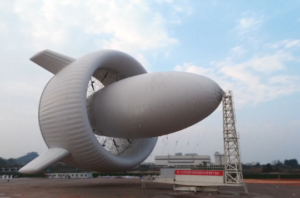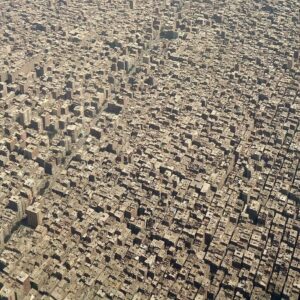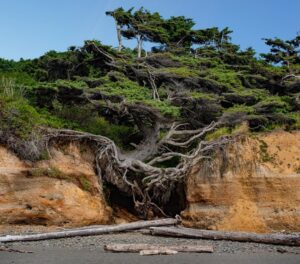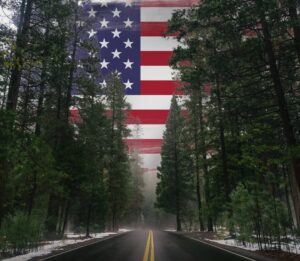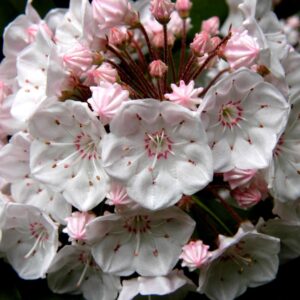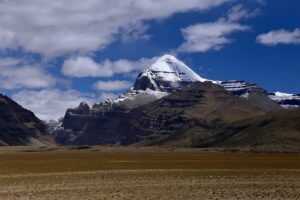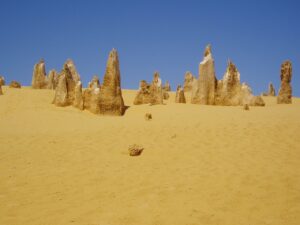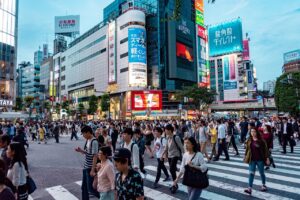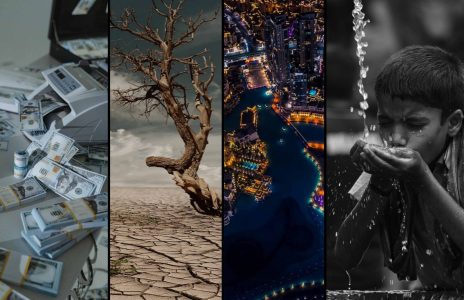 Pin
Pin Images from Pexels & Pixabay
In the marketplace of human desires, we have built a strange temple where gold weighs more than bread, where the third mansion of a wealthy man commands more reverence than the first drink of water for a thirsty child. The merchants of this temple teach us a simple prayer: whatever costs more must be worth more. They whisper that the market, like some divine oracle, reveals the true value of all things through the coins we exchange.
Yet when we pause in the silence between transactions, a deeper truth emerges. The heart knows what the ledger cannot measure. A mother’s love carries no price tag, yet it builds the foundation of a soul. The forest that catches the flood before it destroys a village asks for no payment, yet it holds more worth than all the jewelry in the king’s treasury. When we ask “is price equal to value,” we begin to see through the illusion that has convinced us to build palaces while wells run dry, to count coins while the earth beneath our feet grows barren.
Table of Contents
The Mirage of Market Wisdom
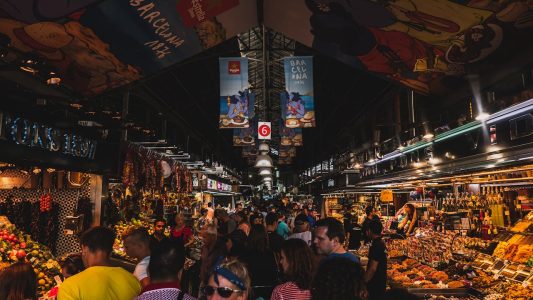 Pin
Pin Images from Pexels
In the bazaar of economic thought, we have been taught to bow before the wisdom of the market as if it were an all-seeing sage. This invisible hand, they tell us, weighs each good and service with perfect precision, assigning prices that reflect their true worth to humanity. When a billionaire exchanges twenty million golden coins for a floating palace while a village child cannot gather twenty copper pennies for life-giving water, the market speaks: the yacht holds a thousand times more value than the child’s survival.
But the mystic who watches the caravan knows that the heaviest purse does not always carry the greatest treasure. The market measures only what those with coins in their hands can afford to desire, not what the soul of humanity truly needs. It listens to the voice of wealth and mistakes it for the voice of wisdom. In this strange mathematics of commerce, the loudest bidder becomes the measure of all worth, while the silent needs of the poor dissolve like morning mist in the desert sun.
When the Heart's Currency Has No Exchange Rate
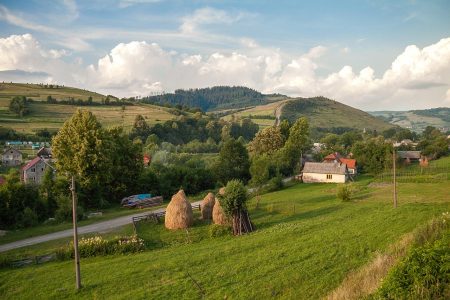 Pin
Pin Image by Nadine from Pixabay
The wise fool in the marketplace carries two purses: one filled with silver coins that jingle with each step, and another holding treasures the merchant’s scale cannot weigh. In this second, invisible purse rest the gifts that sustain life itself—the breath of wind through leaves that purifies the air, the mycorrhizal networks beneath the forest floor that connect tree to tree in silent conversation, the grandmother’s stories that plant seeds of wisdom in young hearts. These treasures circulate in an economy older than coins, where value flows like underground rivers, nourishing everything they touch.
Yet our modern temples of commerce recognize only one currency, blind to this ancient wealth that surrounds us. The accountant’s ledger has no column for the bird’s song that lifts a weary spirit, no line item for the wetland that filters poison from the water before it reaches the village well. These gifts continue their generous circulation whether we acknowledge them or not, like humble servants working in the shadows while the master counts his visible gold. The tragedy lies not in their absence from our calculations, but in our growing inability to see that the most essential economy operates entirely outside the realm of buying and selling.
The Garden Where Nothing Grows for Gold
 Pin
Pin Photo by Quang Nguyen Vinh
The ancient storytellers knew a secret that modern economists have forgotten: the most life-giving waters cannot be bought, only received as grace. The forest that stands guard against the flood charges no fee for its protection, yet without its silent service, the village below would wash away with the first heavy rains. The coral reef that cradles countless fish asks for no payment, yet it feeds generations of fishing families who cast their nets in its sheltered waters.
These guardians of life work tirelessly in what economists call “externalities”—a cold word for miracles that happen outside the marketplace. The mangrove trees that buffer the coastline from storms, the bees that pollinate the farmer’s crops, the wetlands that cleanse contaminated water—all of these operate in an economy of pure giving, where value flows freely without price tags or ownership papers. But because no merchant can claim them and no bank can loan against them, our calculating minds dismiss them as worthless background noise. We treat these life-sustaining gifts like the air we breathe—invisible and infinite—until the day we realize that our endless taking has left the well empty and the guardian trees cut down for lumber.
The Rich Man's Paradox and the Poor Child's Truth
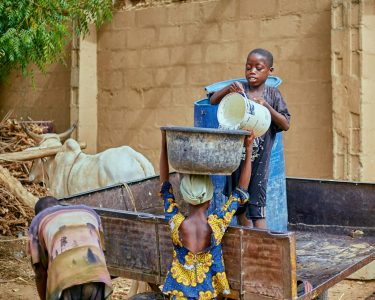 Pin
Pin Photo by M Zass
In the strange arithmetic of our world, the wealthy man’s third yacht receives more attention from economists than ten thousand children who lack clean water. This happens not because the yacht serves any essential purpose, but because twenty million dollars speaks louder in the marketplace than twenty cents multiplied by the desperate whispers of the poor. The rich man’s purchase registers as “high utility” in economic textbooks, while the child’s need disappears into statistical silence—not because it matters less, but because poverty renders need invisible to the market’s measuring instruments.
This paradox reveals the cruel blindness built into our economic vision. The market counts only the votes cast in currency, giving each dollar equal weight whether it comes from surplus wealth or life-saving necessity. The billionaire’s casual luxury purchase signals “high demand” to manufacturers, who respond by creating more floating palaces, more diamond-encrusted handbags, more golden toilets. Meanwhile, the same market logic concludes there is “little demand” for clean water systems in poor villages, not because people don’t need them desperately, but because desperation without purchasing power creates no market signal at all. The system listens only to money talking, deaf to the silent screams of genuine human need.
The Invisible Rivers That Feed All Life
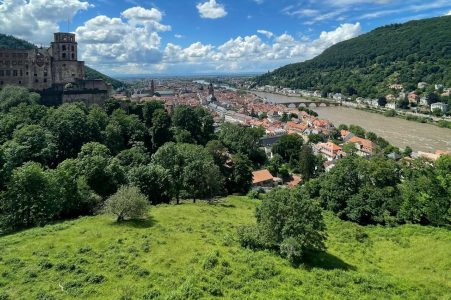 Pin
Pin Photo by Efrail Tunç
The mystic walking through the city sees two worlds layered upon each other like pages in an ancient manuscript. On the surface page, coins change hands and prices rise and fall according to the visible dance of supply and demand. But underneath lies the deeper script—rivers of life-sustaining services that flow without ever appearing on any balance sheet. The urban trees that cool the summer streets and scrub pollution from the air work as tireless servants, yet their labor never earns a wage. The soil microorganisms that break down waste and cycle nutrients through the earth perform alchemy more valuable than any chemical factory, asking nothing in return but to continue their ancient work.
These invisible workers form the true foundation of every economy, though no stock exchange tracks their performance and no government budget allocates funds for their maintenance. The ocean currents that regulate global climate, the atmospheric layers that shield us from harmful radiation, the intricate web of species that maintain ecological balance—all operate as a vast, interconnected support system for human civilization. Yet because they offer their services freely, without sending invoices or demanding contracts, our price-obsessed minds categorize them as “free goods” with zero economic value. We treat them like the devoted friend who always gives without asking for recognition, until one day we discover that our neglect has driven away the very foundation upon which our survival depends.
The False Prophet of Efficiency
The temple priests of modern economics preach a seductive sermon: the market, in its infinite wisdom, allocates resources with perfect efficiency, ensuring that every good finds its way to those who value it most. They point to the elegant mathematics of supply and demand curves, the beautiful symmetry of equilibrium points, and declare that any intervention in this divine mechanism will only create waste and suffering. Yet this sermon rests on a foundation of sand, built upon the assumption that willingness to pay equals worthiness to receive.
The market’s version of efficiency creates a world where factories produce luxury handbags worth more than a teacher’s yearly salary while children die from diseases that could be prevented with medicines costing pennies. This system calls itself efficient because it maximizes the satisfaction of those who have money to spend, regardless of whether that satisfaction comes from genuine need or hollow excess. The billionaire’s fourth private jet registers as a triumph of market efficiency, while the missing hospitals in rural communities represent no inefficiency at all—simply the logical outcome of a system that measures worth by wallet size. In this strange calculus, wasting resources on the trivial desires of the wealthy becomes virtuous, while failing to provide life essentials to the poor becomes merely the natural order of things.
The Merchant's Mirror and the Soul's True Reflection
The storytellers of old knew that every marketplace holds two mirrors: one reflects the glitter of coins and precious metals, while the other reveals the true wealth that flows through human hearts and natural systems. Our modern merchants have polished only the first mirror until it blinds us with its shine, convincing us that what sparkles with price tags holds more worth than what glows with life itself. When we peer too long into this golden mirror, we begin to see ourselves and others only in terms of purchasing power, measuring human dignity by bank account balances and national progress by stock market indices.
But the second mirror, though dusty from neglect, still reflects a deeper truth. Here we see the grandmother whose unpaid wisdom shapes generations, the volunteer who tends community gardens without salary, the neighbor who checks on elderly residents during storms without sending a bill. This mirror shows us forms of wealth that multiply when shared rather than diminish, treasures that grow richer through giving rather than hoarding. The tragedy of our time lies not in the absence of this second mirror, but in our collective decision to turn away from it, choosing the harsh glare of financial metrics over the gentle light of genuine human flourishing. Yet this gentler mirror waits patiently, ready to show us again who we truly are when we find the courage to look beyond the merchant’s narrow reflection.
The Language of Loss in Nature's Silent Ledger
When the last forest guardian falls to the chainsaw’s teeth, no bell rings on any trading floor to mark the loss. The ancient oak that filtered decades of carbon from the sky, whose roots held the hillside steady through countless storms, whose branches sheltered generations of migrating birds—this irreplaceable library of ecological services vanishes from the earth without registering even a penny’s worth of loss in our economic calculations. The clear-cutting company records a profit from the timber sale, while the true cost of destroying this living infrastructure remains invisible to every accountant’s eye.
This silence in our ledgers speaks louder than any market crash ever could. When wetlands disappear under shopping malls, we count the construction jobs created but ignore the lost flood protection that will cost millions when the next hurricane strikes. When coral reefs bleach white from ocean warming, we measure the industrial output that caused the damage but overlook the collapsing fish populations that will leave entire coastal communities without food or income. Our economic language has no words for these losses because it recognizes only what can be owned, bought, and sold. The shared heritage of humanity—clean air, stable climate, fertile soil—dissolves into worthlessness the moment we try to capture it in price tags, like trying to hold flowing water in cupped hands made of gold.
The Beggar's Bowl That Feeds the King
In the sacred stories, the wise king discovers that his golden palace stands upon foundations built by countless hands that never appeared in his royal treasury records. The rain that fills his wells falls freely from skies that charge no tax, yet without this gift, his kingdom would become dust within a season. The earthworms that enrich his fields work without wages, turning fallen leaves into fertile soil that feeds his people. The wild bees that pollinate his orchards ask for no payment, yet their labor creates the abundance that fills his granaries each harvest.
This ancient truth reveals the greatest illusion of our modern economic thinking: the belief that those who pay create all value, while those who give freely contribute nothing worth measuring. Every human society rests upon an invisible foundation of unpaid care work—mothers raising children, neighbors helping neighbors, volunteers maintaining community spaces, citizens participating in democracy without salary. Below this human foundation lies an even deeper layer of natural services provided by forests, rivers, soil organisms, and countless species working in harmony to maintain the conditions that make all human activity possible. Yet our economic mirrors reflect only the small portion of value that flows through monetary transactions, rendering invisible the vast ocean of wealth that sustains every paid transaction we make. The marketplace floats like a golden boat upon this sea of unpaid abundance, mistaking its own reflection for the totality of reality.
The Awakening from the Golden Dream
The moment arrives in every dreamer’s journey when the spell begins to break, when the sleeper stirs and questions the reality of the golden chains that seemed so solid in the darkness. For our economic civilization, this awakening comes as we witness the growing chasm between what our pricing system rewards and what our souls know to be truly valuable. The hedge fund manager who earns millions moving numbers on a screen while the teacher who shapes young minds struggles to pay rent—this contradiction gnaws at the heart of anyone who still remembers that wealth should serve life, not the other way around.
This awakening spreads like dawn light touching mountain peaks, illuminating contradictions that were always there but hidden in the shadows of our accepted beliefs. Communities around the world begin experimenting with alternative ways of measuring progress—tracking happiness indices instead of just gross domestic product, valuing ecosystem restoration alongside industrial output, recognizing care work as essential economic activity deserving of social support. These experiments plant seeds of a different kind of economic thinking, one that remembers the ancient wisdom that true prosperity flows from the health of the whole community, including the more-than-human world that sustains us all. The golden dream that convinced us price equals value slowly gives way to a deeper understanding that worth cannot be captured in any currency, only honored through how we choose to live and what we choose to protect.
The Path Beyond the Merchant's Gate
The ancient mapmakers knew that every journey toward truth begins with admitting we have been walking in circles, mistaking familiar landmarks for the entire world. Our economic maps, drawn by centuries of merchant-philosophers, show only the territories where coins change hands, leaving vast continents of human experience marked simply as “here be dragons.” But the dragons, it turns out, are the guardians of treasures our golden compasses could never locate—the wealth that flows through relationships, the abundance that multiplies when shared, the security that comes from living in harmony with the natural systems that sustain all life.
The path forward does not require abandoning every tool of commerce, but rather placing these tools in service of a larger vision that honors both the visible transactions and the invisible foundations upon which they rest. Some communities have already begun this journey, creating local currencies that keep wealth circulating within neighborhoods, establishing time banks where hours of service become the medium of exchange, and developing regenerative businesses that measure success by how much life they create rather than how much profit they extract. These pioneers understand that the question is not whether markets should exist, but rather what kind of world we want our markets to create. When we remember that economics is simply the art of household management for the human family—and that our household includes the entire living earth—we begin to see that true prosperity has always been about ensuring that every member of the household has what they need to flourish.
FAQs
Because our economic system listens only to purchasing power, not actual human need. The wealthy can “vote” with millions for yachts, while the poor can’t afford to “vote” for water systems.
Externalities are life-sustaining services like forests preventing floods or bees pollinating crops. They don’t appear in prices because no one owns them to charge for their benefits.
Yes! Communities worldwide are creating markets that serve broader values—local currencies, time banks, and businesses measuring success by life created, not profit extracted.
Every paid job depends on unpaid care work (raising children, maintaining communities) and natural services (clean air, fertile soil, stable climate) that make human activity possible.
It would prioritize ecosystem health, community wellbeing, and meeting basic human needs first, using markets as tools to create flourishing rather than just accumulate wealth for the few.













